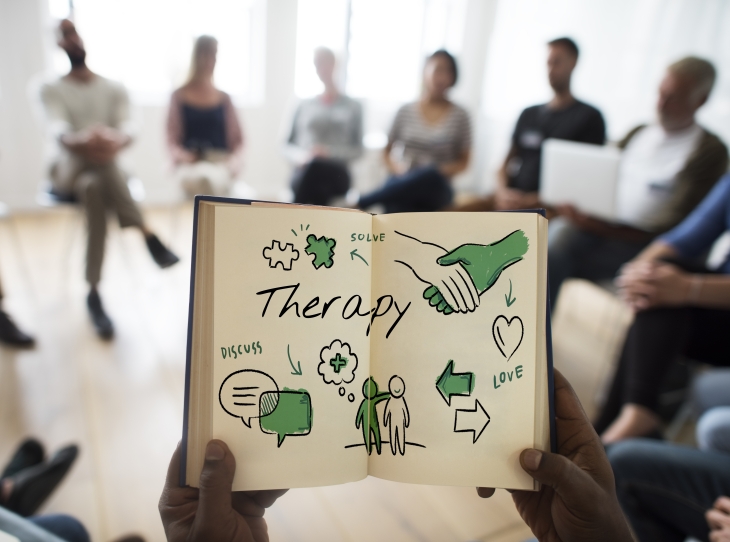Effective addiction recovery requires more than just addressing the problem at the surface level. For individuals seeking freedom from addiction, the road to recovery is rarely easy but deeply rewarding. A addiction recovery center offers essential tools and strategies to create a foundation for lasting healing, empowering individuals to reclaim their lives. This post will explore the key benefits of addiction recovery programs and how they contribute to long-term transformation.
Understanding Addiction as a Multifaceted Challenge
Addiction is more than a personal choice or weakness; it is often a complex interplay of biological, psychological, and social factors. Studies show that approximately 20.4 million Americans aged 12 or older struggled with substance use in 2019, highlighting the widespread need for effective recovery solutions. A professional recovery center understands these complexities and designs programs to address root causes while building healthier coping mechanisms.
Personalized Care for Unique Needs
No two individuals experience addiction in the same way, and personalized care is crucial in the recovery process. A tailored approach takes personal triggers, history, and mental health into account to create a program that works for the individual. Some strategies include one-on-one counseling, development of personal relapse-prevention tools, and tailored therapies that cater to specific life challenges.
Research suggests that personalized treatment programs improve outcomes significantly when compared to generic approaches. Addressing individuals’ unique struggles generates a sense of ownership and builds self-confidence in managing life post-recovery.
Recognizing the Role of Mental Health in Recovery
The close connection between mental health and addiction needs special consideration in any recovery program. Studies indicate that around 50% of individuals with substance use disorders also experience mental health conditions like anxiety or depression. Recovery centers often incorporate dual-diagnosis strategies to address both issues systematically.
Treatments such as cognitive-behavioral therapy (CBT), dialectical behavior therapy (DBT), and trauma-focused therapy create awareness of damaging thought patterns while providing tools to manage emotions constructively. By acknowledging the relationship between mental health and addiction, these tools work toward sustainable recovery rather than a temporary fix.
Establishing Healthy Routines
Addiction imposes chaos on daily life, creating instability in everything from work schedules to personal relationships. Recovery centers provide structure to help individuals develop regular routines and healthy habits. This stability reinforces the importance of consistency and self-discipline in maintaining sobriety. Activities can include guided morning meditations, scheduled mealtimes with nutritional guidance, evening group therapy sessions, and designated downtime to focus on personal goals.
Structured routines also eliminate idle time, which could otherwise be filled with unhealthy habits or relapses. Additionally, participants learn how to replicate these routines in their everyday lives, bringing consistency to even the most chaotic environments.
Building Coping Mechanisms for Stressful Realities
A significant portion of addiction stems from an individual’s inability to cope with daily stressors. Recovery centers aim to reframe the way participants view and respond to stress. Whether it is learning mindfulness techniques, practicing deep-breathing exercises, or identifying triggers during counseling sessions, these strategies effectively reduce the urge to turn back to substance use as a coping method.
Mindfulness techniques, such as grounding exercises or journaling, help individuals stay present and appreciative of their progress, whereas in-depth cognitive therapies replace harmful thought patterns with constructive ones. Both skills build resilience when facing challenges safely and responsibly.
Creating Strong Support Systems
It is said that recovery thrives in connection, not isolation. Addiction recovery programs emphasize the importance of community by fostering strong relationships both inside and outside of therapy. Participants engage in group therapy, where they share experiences and gain inspiration from others at different stages of recovery. Peer encouragement significantly contributes to overcoming feelings of shame or self-doubt.
Family support is another crucial aspect often strengthened during treatment. Programs may offer family counseling sessions for open communication, understanding, and the rebuilding of trust. For those without family involvement, mentorship opportunities offer guidance from others with lived recovery experience.
Learning From Relapse Management Tools
Recovery is rarely linear, and occasional setbacks are common as individuals adjust to the new norm. Recovery centers provide relapse-prevention strategies that help participants identify and manage potential risks early on. These include techniques such as learning to recognize trigger situations, having emergency contact lists, and creating diverting activities that align with personal goals.
Rather than viewing relapse as failure, these moments become opportunities for growth. By reframing challenges as learning experiences, the individual stays motivated to continue their path toward healing.
Long Term Tools for Lasting Transformation
Sustainable recovery doesn’t end with completing a program. Recovery centers aim to equip individuals with permanent tools they can carry throughout life. Skills like effective communication, better judgment under pressure, and improved conflict resolution are emphasized to help individuals function better in social and professional settings post-recovery.
Part of this long-term transformation also comes from learning how to set manageable future goals. Whether it involves advancing in a career, repairing relationships, or improving overall health and wellness, a sense of purpose and forward direction keeps motivation high. Recovery centers encourage examining one’s values and aligning goals to create a meaningful and fulfilling life.
Reinforcing the Role of Education in Recovery
An often-overlooked benefit of structured programs is the role education plays in recovery. Participants are not just learning how to overcome addiction but also gaining knowledge on how substances affect the brain, body, and behavior. Understanding the science behind addiction helps foster better self-awareness and decision-making.
Additionally, recovery programs teach life skills such as financial planning, time management, and career development, which are critical for leading stable and independent lives post-recovery.
Empowering Individuals for Lifelong Success
Addiction recovery centers provide far more than short-term solutions. By addressing core challenges, building strong systems of support, and equipping individuals with specialized tools for their unique challenges, these programs lay the groundwork for lifelong empowerment.
Healing isn’t an endpoint but a continuous process. With the coping skills, education, and community support provided by professional recovery programs, individuals are better prepared to manage life’s ups and downs while staying on the path of lasting recovery.






Leave a Reply